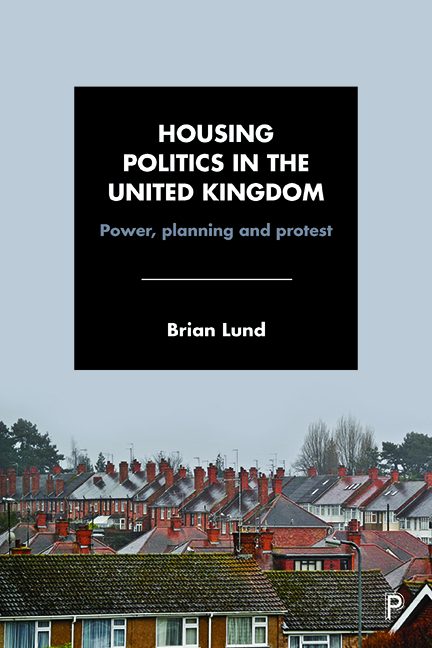Book contents
- Frontmatter
- Contents
- Acknowledgements
- Preface
- one Housing and politics
- two Land politics
- three Urban renewal: fencing the cities
- four Private landlords: ‘Rachmans’ or ‘residential property-owners’?
- five A property-owning democracy?
- six Eclipsing council housing
- seven Bending the ‘Third Arm’: politicians and housing associations
- eight Homelessness politics
- nine Devolution: where is the difference?
- ten Conclusion: power, planning and protest
- References
- Index
eight - Homelessness politics
Published online by Cambridge University Press: 05 April 2022
- Frontmatter
- Contents
- Acknowledgements
- Preface
- one Housing and politics
- two Land politics
- three Urban renewal: fencing the cities
- four Private landlords: ‘Rachmans’ or ‘residential property-owners’?
- five A property-owning democracy?
- six Eclipsing council housing
- seven Bending the ‘Third Arm’: politicians and housing associations
- eight Homelessness politics
- nine Devolution: where is the difference?
- ten Conclusion: power, planning and protest
- References
- Index
Summary
As Somerville (2013, pp 384–5) has argued:
Homelessness is experienced by individuals (along any one of its dimensions) but it is also imagined, for example, by policy-makers, academics and the general public. Such imaginings (or ideological constructions) tend to take on a life of their own.
Homelessness ‘imaginings’ have a political dimension and homelessness definitions are linked to official statistics and causal notions to construct public messages about the problem's extent and nature, with the ‘headline’ statistics on ‘rough sleepers’, households accepted as homeless and households living in temporary accommodation being particularly salient. These messages carry implications for interpreting other social issues because homelessness is a compelling social inequality symbol. Thus, ‘homelessness’, under its various designations – ‘masterless men’, ‘vagrancy’, ‘destitution’, ‘houseless poor’, ‘rootless’, ‘statutory homeless’ and ‘rough sleepers’ – has had lasting political salience with its structural–agency constructions framing wider debates on the ‘housing issue’.
The ‘deserving’ poor
The term ‘homeless’ was not used in the 19th century: its surrogates were ‘destitution’ – lacking the necessary means for subsistence, including shelter – and ‘vagrancy’ – ‘without a settled way of living’. The remedy for destitution was the Poor Law, dating back to the 14th century and codified in 1601. The Elizabethan Poor Law was located in ‘feudal ties’ reinforced by mercantilist economic theory. Mercantilism emphasised the need for a favourable trade balance to secure the bullion necessary for the nation's defence and expansion. A wise sovereign should ‘maintain all its objects (persons, things) in their rightful place’ (Dean, 1991, p 30) and promote a large, productive population. The Elizabethan Poor Law placed a duty on parish churchwardens to appoint ‘overseers of the poor’ with the power to raise ‘competent sums of money’ by a compulsory rate. Local Poor Law operations were placed under the supervision of Justices of the Peace (JPs) – ‘good and lawful men’ – to guard the ‘King's Peace’. Potentially, destitute people with an enduring connection to their locality – a ‘settlement’ – could benefit from the parish providing ‘convenient houses of dwelling for the impotent poor’ (An Act for the Relief of the Poor, quoted in Bruce, 1973, p 39) and the purchase of materials to set the ‘potent’ poor to work.
- Type
- Chapter
- Information
- Housing Politics in the United KingdomPower, Planning and Protest, pp. 207 - 232Publisher: Bristol University PressPrint publication year: 2016



